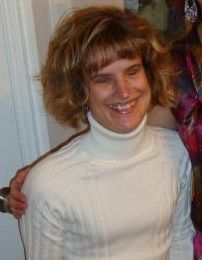Halifax Media Co-op
News from Nova Scotia's Grassroots
Can you support independent journalists with $5? donate today!
Pat Gates helps reclaim quality lives with the visually-impaired
Winner of the 2011 Holly Award
Pat Gates continues to share her success story about overcoming the challenging of adjusting to vision loss.

The award was established to honour the memory of Holly Bartlett. She was a swing dancer, had several degrees, was a policy analyst for the N.S. government. But she died at 31 in March 2010 after falling over an embankment. Appalled by the accident but inspired by her life, the CNIB decided to highlight the valuable work of committed volunteers who continue to inspire the visually-impaired community. To watch a video on her life: http://www.youtube.com/watch?v=6tTNzpZloxI
Every person has the right to a quality life.
This is the key to Pat Gates’ generous volunteer work with the Canadian Institute for the Blind (CNIB), work which led to her being named on of the first recipients of CNIB's Holly Award.
“The more people who are reached, the more people will realize, Hey, I’ve lost some vision but it’s not the end of the world”, Gates explains.
Gates, in her 50s, is a CNIB ambassador and a peer support for people going through the “Adjustment to Vision Loss Program”. The eight-week session offers support for persons experiencing traumatic changes such as losing a driver's license or the ability to read, and skill development for other daily activities that offer a sense of independence and freedom.
She is living proof for program participants that change is possible. “I came to vision loss at a much older age, and I’ve overcome obstacles. Now I’m trying to help other people overcome their obstacles!” said Gates. In the program, they discuss important skills like communication, confidence building, and they talk about the various services and assistant devices available through CNIB to help people reclaim their independent life.
Though she lived with varying degrees of vision impairment for more than 20 years, it was only two years ago that Gates accessed services from the CNIB. She said she didn’t realize what services were out there. For 10 years after being diagnosed with glaucoma and losing most of her vision, she fell into a depression. “I lived in fear. For many many years I slept with a light on at nighttime because I thought if I wake up and it’s dark, then I’m blind, and I couldn’t face that.” Without the necessary skills to live with her increased vision impairment, she became dependent on friends to run errands. Otherwise she lived her life confined to her apartment.People began to treat her as if she had lost her hearing too. She hit a wall. “I sat in my rocking chair and I said, You know what, I can’t do this anymore. I’m not living. This is not my life. I have to get some semblance of life back.” So she called the CNIB and began the process of reclaiming her life. She met with a mobility specialist who helped her walk with her white cane that she now calls “Alfie” and doesn’t leave home without. He also helped her take the bus again, so she could do errands on her own.
“What getting on the bus did for me was that it gave me back my independence, and my freedom, and my self-esteem.”
Gates believed the CNIB was for the totally blind, so she bypassed their services for her first 18 years of varying degrees of vision loss. “This is something that the CNIB is trying to make people realize -- 95 per cent of the people that go to the CNIB have some vision. There’s 60,000 visually impaired people in Nova Scotia and only 30,000 of them have been to CNIB.”
Gates’ volunteering consists of teleconferences for rural participants across the Maritimes, as well as sessions at Acadia University. CNIB tries to extend their reach to all the Maritime provinces, in both rural and urban areas. To fill information gaps about CNIB services, CNIB has started an outreach pilot project that informs patients at the Nova Scotia Eye Center, where diagnosis of vision loss happens.
For the sighted public, they offer some public education for kids about disabilities. As a volunteer CNIB ambassador, Gates answers questions that the public may have about living with vision impairment, and to go out into the world and live as she did before vision loss.
“People are using guide dogs and white canes. Just the fact that we’re out there, sighted people can see us assimilating into their own sighted world. We just have to do things in a different way sometimes. I function just the same as I did with two good eyes, but I’m more understanding and compassionate now about other people with disabilities, because I’ve been going through this myself.”To watch Sights Unseen, a video on Holly Bartlett, click here."Sights Unseen is not about a heroic young woman overcoming a disability- it's about a normal young woman living a busy, but normal, life."
Topics: Health
715 words
bar baz
The site for the Halifax local of The Media Co-op has been archived and will no longer be updated. Please visit the main Media Co-op website to learn more about the organization.


